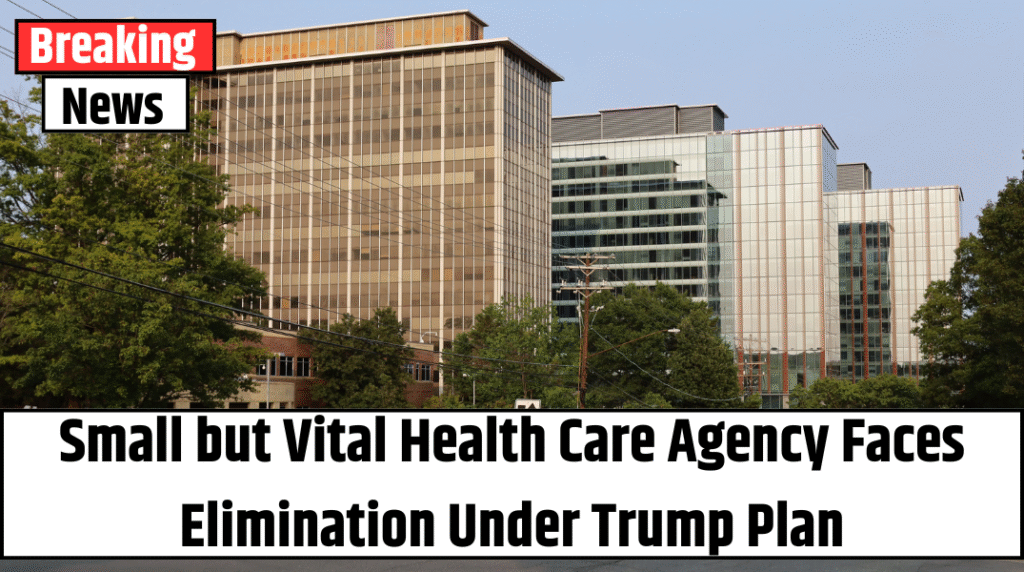In 1995, Sue Sheridan’s infant son, Cal, suffered permanent brain damage from untreated jaundice. In 2000, Helen Haskell lost her 15-year-old son, Lewis, after routine surgery when weekend hospital staff failed to recognize signs of internal shock. These tragedies turned grief into advocacy — fueling a nationwide push for patient safety and medical accountability.
At the heart of that push was a federal agency you may never have heard of: the Agency for Healthcare Research and Quality (AHRQ). Now, it’s all but gone.
As of April 1, the Trump administration, under Health and Human Services Secretary Robert F. Kennedy Jr., executed sweeping layoffs and slashed AHRQ’s budget by up to 90%, effectively gutting an agency long considered the nerve center for data-driven patient safety research in the U.S.
A Silent Giant in Public Health
AHRQ wasn’t flashy. It didn’t develop blockbuster drugs or set federal health mandates. Instead, it quietly revolutionized how hospitals learn from mistakes, improve care quality, and avoid deadly medical errors. With a $513 million budget — barely 0.04% of HHS’ total spending — AHRQ supported pioneering research on everything from misdiagnoses to medical device safety.
Its efforts weren’t just academic. Thanks to AHRQ, all U.S. newborns are now tested for jaundice before discharge, a change that drastically reduced the risk of kernicterus, the brain damage Cal Sheridan suffered. AHRQ-funded research also contributed to infection-prevention checklists that helped cut deadly bloodstream infections by nearly 30% between 2015 and 2023.
Yet when top officials from the Trump-created Department of Government Efficiency (DOGE) first met with AHRQ leadership, they didn’t even know what the agency did, according to anonymous insiders. By the end of March, the administration announced AHRQ would be folded into a separate HHS planning office — a move experts say amounts to a slow-motion demolition.
Also Read – Health Care AI Meant to Save Costs Now Relies on High-Priced Human Labor
The Real-World Consequences
To researchers like Dr. Hardeep Singh of Baylor College of Medicine, the cuts aren’t just bureaucratic. They’re personal — and potentially catastrophic. Singh, who leads teams studying AI’s role in preventing medical errors, holds three AHRQ grants that fund 15 jobs. With AHRQ’s research division now dissolved, he says many early-career scientists face dead ends.
“We’ve lost the only federally funded program that specifically supports patient safety science,” Singh said. “This isn’t just a budget cut. It’s an abandonment of public health priorities.”
The closure has drawn comparisons to pulling firefighters off duty during wildfire season. Medical errors — whether from drug interactions, communication breakdowns, or equipment failures — remain one of the leading causes of death in the U.S., estimated by some researchers to claim 250,000 lives annually.
Political Battles and Censored Science
AHRQ has long faced skepticism from Republican lawmakers and segments of the medical establishment. Some viewed its research as intrusive or duplicative of the National Institutes of Health.
But even critics didn’t expect this: the removal of entire public safety case studies over vague allegations of promoting “gender ideology.” One AHRQ-backed article — a suicide prevention case study co-authored by Harvard’s Dr. Gordon Schiff — was pulled because it noted LGBTQ men face higher suicide risks. Schiff refused to delete the reference and is now suing the agency for scientific censorship.
“That fact wasn’t political. It was evidence-based,” Schiff said. “To erase it is to erase lives.”
The article was published on PSNet, AHRQ’s flagship safety portal, which has since been taken offline. Internally, the mood is grim. “We’re a passionate, tight-knit group of scientists. Many of us dedicated our careers to this work,” said one senior staffer who asked to remain anonymous. “Now it’s just been erased overnight.”
Also Read – Doctors Warn Measles Comeback Signals Deeper Public Health Crisis
A Legacy Uncertain
During the COVID-19 pandemic, public and private health organizations relied on AHRQ for granular data — from hospital infection rates to disparities in rural care. Though some critics like economist Stephen Parente argue that private-sector data was more agile during the crisis, he acknowledges that AHRQ’s academic rigor provided a crucial foundation for health policy.
“We’re not just losing data,” he said. “We’re losing a training ground for young researchers, a bridge between science and care delivery.”
FDA Commissioner Marty Makary — himself an AHRQ-funded researcher — credits the agency with changing outdated practices that once cost lives. In the 1980s, for instance, IV-related infections were seen as inevitable after major surgeries. AHRQ helped show that they weren’t inevitable — they were preventable.
Without AHRQ, said Richard Kronick, a former agency director, “we’d still be calling those deaths normal.”
What Happens Now?
Though the agency’s work is being “merged” into a broader planning department, few believe its mission will survive intact. The CDC and Medicare may pick up fragments, but they too face staffing shortages. Some of AHRQ’s most impactful tools — like the hospital safety surveys Sheridan and Haskell helped develop — have no clear successors.
Dr. Singh sees a grim irony: just as AHRQ was preparing to expand its AI patient safety initiatives, it was defunded. “There’s this belief that AI will fix everything in health care — that it can replace human oversight,” he said. “But AHRQ reminded us: you need humans in the loop. Now we’ve fired the humans.”
Also Read – Republican Plan to Slash Medicaid Sparks Fears of Setbacks in Red States
For families like Sheridan’s and Haskell’s, the impact is emotional as well as systemic. Their tragedies once catalyzed national safety reforms. Now, they fear those hard-won lessons may fade — and be repeated.
“Patient safety is not a luxury. It’s a responsibility,” Haskell said. “AHRQ was the only agency solely devoted to that responsibility. And now it’s gone.”



